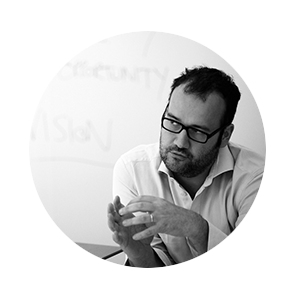Master in City & Technology 2020/21 – Term II
Seminar Name: Future Mobility|
Total Hours: 30 hours
Faculty: Federico Parolotto, Francesca Arcuri

Credits: Mobility in Chain
Abstract
These days the pandemic is forcing us to radically change our usual behaviors and mobility patterns to adapt to unexpected living condition. Mobility planning has to adapt too and technology becomes a fundamental enabling element for that.
The direct experiencing of people and places’ dynamics is at the base of the concept of mobility itself as well as of the mobility planning process. Now, due the new global situation, this direct relation and mutual influence between the individual and the context she/he is moving within need to be redefined.
This year the Future Mobility Seminar will take its moves from discussing a sustainable approach to mobility planning, studying the impact of the transport infrastructure on the urban and human environment and unveiling mobility as a complex and multi-layered ecosystem of indicators, disciplines and elements to look at. “THE FUTURE OF ROAD INFRASTRUCTURES: JUNCTIONS AND CROSSROADS” Competition Brief, issued by AMB, will offer the initial case study with one of the areas identified by the brief.
On these bases, the Seminar will then bring the students to try in person how technology can become the individual’s expansion to experience the environment and understand its dynamics. A” Site visit 2.0” will become a project in itself, where the students will be at first the sensing element on-site in BCN, to then become directors from remote of someone else performing a site visit for them. In doing so, the students will be asked to choose for their project a transport element in their home town/country to bring in the added value of the context diversity, especially in these times of pandemic and considering the fundamental topic of non-sustainability of growing mobility demand and shrinking of the world due to always faster mobility options.

Credits: Mobility in Chain
Learning Objectives
At course completion the student will:
-understand the multidisciplinary approach and multiscalarity of the mobility planning process, along with the various phases and activities that compose it and the potential that new technologies unleash
– develop lateral thinking to approach mobility as part of the multifaceted ecosystem, centered on the user and voted to sustainability
– develop a critical insight into the impact of transport infrastructure, with regards to the urban and human environment, as well as on the mitigation measures that could be put in place
-be able to identify key elements for a complete mobility assessment, plan for and carry out a “Site Visit 2.0” by using technology to achieve the goal
Faculty

Federico Parolotto is Senior Partner at MIC – Mobility in Chain, which he co-founded with Davide Boazzi and Federico Cassani in 2009. He began his career with SOM in the UK (1994–98) and worked with Systematica in Milan (1998–2008) where he was made partner in 2006. He has been involved as transport planner in numerous major urban planning projects worldwide. He collaborated with Foster + Partners on the new „zero-carbon city“ of Masdar, planned in Abu Dhabi, and on the winning entry in an international design competition for a new city near Seoul, South Korea. He has worked with OMA, UNstudio, KPF and other renowned studios on several groundbreaking projects. He was a speaker in numerous international events including the Greenbuild conference (Boston), Ecological Urbanism (Harvard University, Cambridge) in 2009; Helsinki Design Lab in 2010; Superurbano Conference in Padova in 2011; Moscow Biennale in Moscow; SPIEF in Saint Petersburg; World City Forum in Naples and Connect Ideas Maximize Impact In Stuttgart in 2012. In 2011 he co-founded Flow(n)- www.flow-n.eu – MIC research unit. He lectured in several international universities and, among various publications, his essays were published in 2011 on “Ecological Urbanism” by Mohsen Mostafavi and Gareth Doherty and in 2012 on “Ecological Urban Architecture: Qualitative Approaches to sustainability” by Thomas Schroepfer. Federico since 2012 is a member of the scientific committee for the new Milan Sustainable Transport Master Plan.

Francesca Arcuri: With a technical background as an aerospace engineer specialized in sustainable technologies, Francesca Arcuri has been a consultant at MIC since 2009. Her professional experience started in 2007 as a research assistant and later as a consultant for the Politecnico di Milano. At MIC, she has worked as a transport planning consultant on several international projects, gaining experience especially on a scale that ranges from masterplan to town and regional scale. She has also developed a specific expertise on sustainable planning and mobility on-demand systems. Currently, she is a senior consultant and project manager at MIC.
